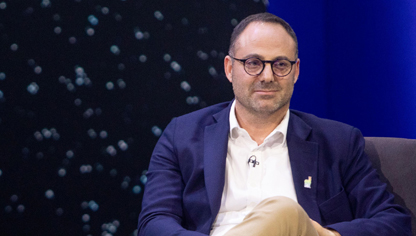To offset this deterioration and to continue a healthy and fulfilling life, the usual advice is to maintain a healthy lifestyle (exercise and diet) and to keep the brain active. While this is sound advice on the face of it, according to the latest research, it appears that the type of brain activity one engages in, as well as the type of social interaction one sustains, makes all the difference.
In this piece, we examine the sorts of activities that research proves best for maintaining brain health and increasing one’s sense of fulfillment and happiness in ‘the afternoon of life,’ as Carl Jung called it.
There’s a curious irony to all of this – we derive that feeling of wellbeing while we are alive, even though the fruits of our work may sometimes only be realised after we are gone.
It turns out that activities, like reading and doing puzzles like crosswords, Sudoku or other brain teasers, have only a minor effect on brain health in later years. Research shows that a very particular kind of brain activity is necessary for sustaining mental health in old age and that is activity of a social nature.

Those who maintain a high level of social interaction in their retirement are more likely to retain brain capability, with a clear correlation between the level of social interaction and the health of the brain.
This is because social interaction is actually highly complex and taps many areas of the brain at once utilising a wide spectrum of neural activity. The complex neural stimulation created in social interaction, therefore, goes much further than the sort of stimulus provided by brain teasers. This means that, for brain health, the worst thing for a person to do in retirement is to become isolated from other human beings, something which commonly results in brain deterioration. So the old Confucian saying: “A used doorstop never rots” can indeed be applied to brain health, but the ‘use’ required must be of a social nature.
But that is not all. It turns out that the type of social activity makes a difference as well. Specifically, social activity geared towards serving others an be especially beneficial.

Research shows that those who get involved in acts of service to a community, such as volunteering, are less likely to suffer from depression in old age.
This is because they experience a meaning loop in which those acts of value creation for others gives the provider a sense of being valued themselves, which in turn creates psychological wellbeing. If one thinks about one’s working career, one sees that work itself is a meaningful act because it is value-creating (which is not only monetary). We feel we are making a difference to the entity we are working for or to those we work with or provide services to. This, in turn, is fulfilling and creates an important meaning cycle in adult life. When we retire we can lose this meaning cycle and that can result in melancholy or even mental health problems.
The complex neural stimulation created in social interaction, therefore, goes much further than the sort of stimulus provided by brain teasers.
To counteract this, retirees need to look to contribute to others in some way or form. This will keep the meaning loop going, and will ensure that retirement does not create a feeling of no longer being valuable to the world. Volunteering in community centres or religious institutions can be powerful at this time of life. Others offer to teach or mentor younger people in a field in which they have expertise, and some create art, write or build things that others find beautiful or interesting.
Finally, there is a third and important element to happiness in the afternoon of life. Research has shown that those who believe they are leaving a legacy for others to enjoy after they die can experience a deep sense meaning in their later years. This can take the form of an endowment or work towards some public good that continues after they are gone. That sense of leaving something behind which others will find valuable after we die facilitates a powerful feeling of meaning in our final years. There’s a curious irony to all of this – we derive that feeling of wellbeing while we are alive, even though the fruits of our work may sometimes only be realised after we are gone.
These then are the three elements to ensure a healthy and fulfilling retirement – engage in social activity, serve others and leave a legacy. However, there is an important fourth element that underpins these and this is the imperative to secure the financial independence to pursue the first three strategies. Be sure you have the money to enable you in these activities. Those who find themselves financially constrained are likely to be more isolated and dependent on others after retirement, which, as we have explained, is the opposite of what is required for well-being in our later years. So while thinking about how you give something back once you are retired, never forget how important a solid financial plan is in helping you to make it a sun-filled afternoon.
Receive Focus insights straight to your inbox
About the author

Marc Kahn
Global head of people and organisation development, Investec
Marc is responsible for the people value chain of Investec worldwide. Specifically his areas work to facilitate the way the company's culture supports and drives its people and their businesses toward extraordinary performance. Marc is a psychologist (HPCSA & PBA), a chartered business coach (WABC), a certified master coach (IMCSA) and a seasoned management consultant. Marc is a Visiting Professor of People, Organisation and Strategy at Middlesex University, and the author of the book: Coaching on the Axis: Working with Complexity in Business and Executive Coaching (2014) Routledge: London.




